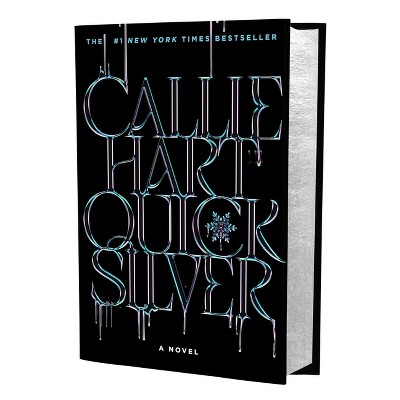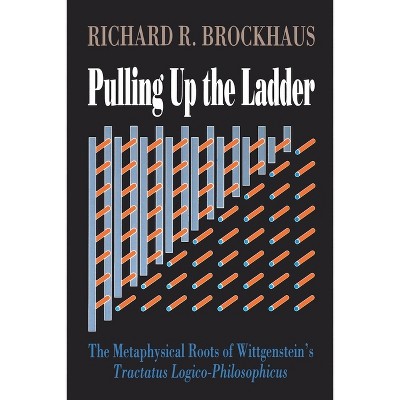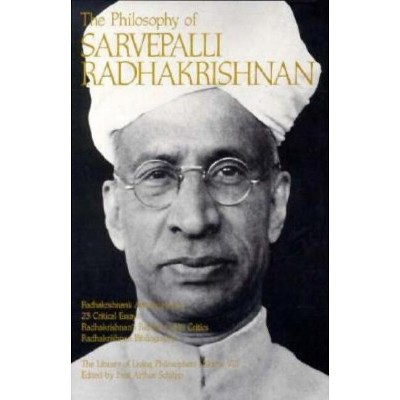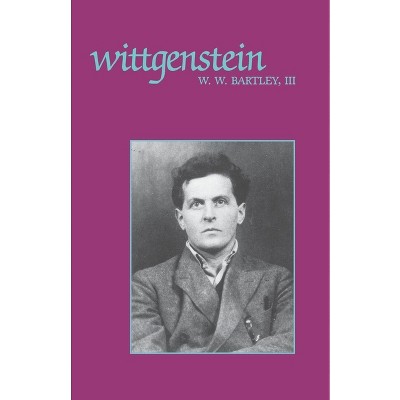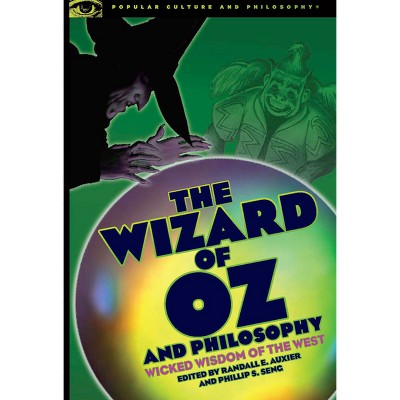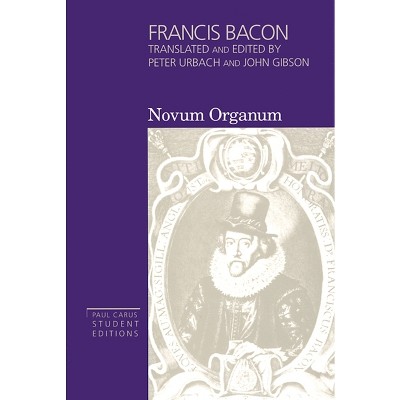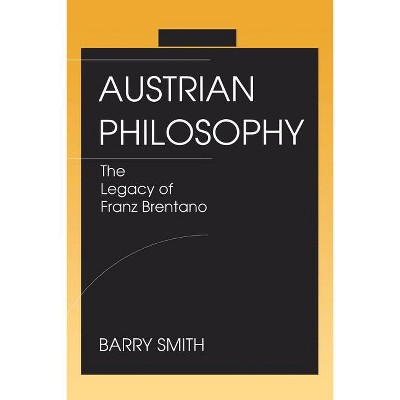$38.49 sale price when purchased online
$54.95 list price
Target Online store #3991
About this item
Highlights
- The Western intellectual tradition has identified rational thinking with he purely logical, excluding other kinds of thinking (such as thinking by analogy, correlation, imaginative simulation) from philosophy, without denying their indispensability in the conduit of life.
- Author(s): James Harris
- 228 Pages
- Philosophy, History & Surveys
Description
About the Book
The Western intellectual tradition has identified rational thinking with he purely logical, excluding other kinds of thinking (such as thinking by analogy, correlation, imaginative simulation) from philosophy, without denying their indispensability in the conduit of life.The central argument of 'Unreason Within reason' is that it is this endeavor to detach the logical from other kinds of thinking which has led to the present crisis of rationality, in which reason seems everywhere to be undermining its own foundations. The concepts from which logical thinking starts are inescapably rooted in the spontaneous correlation of the similar/contrasting and contiguous/remote, which according to Jacobsonian linguistics, structures the sentences analyzed by logic. Logical thinking can turn back on itself to criticize the correlations but cannot detach itself to replace them by logically impregnable foundations.
No mode of thinking -- poetic, mythical, mystical -- is inherently irrational; the function of the logical is not to replace them but to test them. Graham finds this approach relevant to the fact/value and egoism/altruism problems in moral philosophy and to the epistemological of conflicting conceptual schemes, as well as to the situating myth and mysticism in relation to philosophy and to the development of a variety of perspectivism clearly distinguishable from relativism.
Graham pays special attention to Nietzche and Bataille, as representative critics of rationalism, and to Chinese philosophy, as a tradition which has not isolated the logical from other kinds of thinking. Graham's' engagement of classical Chinese and western sensibilities provides a novel context within which to reconsider issues raised by Derrida's critique of logocentrism and the new Pragmatism of Davidson and Rorty.
Book Synopsis
The Western intellectual tradition has identified rational thinking with he purely logical, excluding other kinds of thinking (such as thinking by analogy, correlation, imaginative simulation) from philosophy, without denying their indispensability in the conduit of life. The central argument of 'Unreason Within reason' is that it is this endeavor to detach the logical from other kinds of thinking which has led to the present crisis of rationality, in which reason seems everywhere to be undermining its own foundations. The concepts from which logical thinking starts are inescapably rooted in the spontaneous correlation of the similar/contrasting and contiguous/remote, which according to Jacobsonian linguistics, structures the sentences analyzed by logic. Logical thinking can turn back on itself to criticize the correlations but cannot detach itself to replace them by logically impregnable foundations. No mode of thinking -- poetic, mythical, mystical -- is inherently irrational; the function of the logical is not to replace them but to test them. Graham finds this approach relevant to the fact/value and egoism/altruism problems in moral philosophy and to the epistemological of conflicting conceptual schemes, as well as to the situating myth and mysticism in relation to philosophy and to the development of a variety of perspectivism clearly distinguishable from relativism. Graham pays special attention to Nietzche and Bataille, as representative critics of rationalism, and to Chinese philosophy, as a tradition which has not isolated the logical from other kinds of thinking. Graham's' engagement of classical Chinese and western sensibilities provides a novel context within which to reconsider issues raised by Derrida's critique of logocentrism and the new Pragmatism of Davidson and Rorty.Dimensions (Overall): 6.26 Inches (H) x 9.3 Inches (W) x .9 Inches (D)
Weight: 1.28 Pounds
Suggested Age: 22 Years and Up
Number of Pages: 228
Genre: Philosophy
Sub-Genre: History & Surveys
Publisher: Open Court
Theme: General
Format: Hardcover
Author: James Harris
Language: English
Street Date: February 19, 1999
TCIN: 1005873464
UPC: 9780812692013
Item Number (DPCI): 247-13-6048
Origin: Made in the USA or Imported
Shipping details
Estimated ship dimensions: 0.9 inches length x 9.3 inches width x 6.26 inches height
Estimated ship weight: 1.28 pounds
We regret that this item cannot be shipped to PO Boxes.
This item cannot be shipped to the following locations: American Samoa (see also separate entry under AS), Guam (see also separate entry under GU), Northern Mariana Islands, Puerto Rico (see also separate entry under PR), United States Minor Outlying Islands, Virgin Islands, U.S., APO/FPO
Return details
This item can be returned to any Target store or Target.com.
This item must be returned within 90 days of the date it was purchased in store, shipped, delivered by a Shipt shopper, or made ready for pickup.
See the return policy for complete information.




